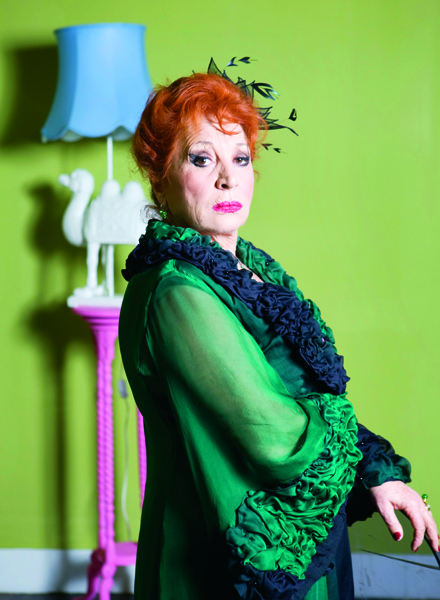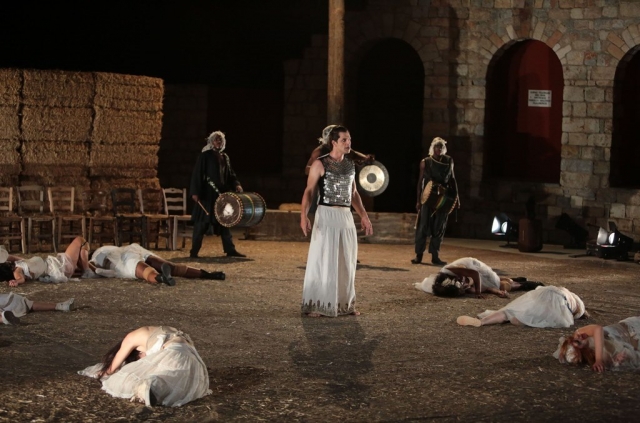Photos: iefimerida.gr
The popular singer received the Karolos Koun Theatre Award for ancient drama for his role in the tragedy "Bacchae" by Euripides, infuriating many actors in Greece.
When Rouvas stood up to receive his reward, someone in the crowded hall said, "With what skills do you obtain it?" and he replied, "With my soul."

The reactions, however, did not stop there and continued with an angry speech by actress Chrysoula Diavati, who refused to receive her award for her role in the play "Two women dance." She asked for the intervention of "theatre police" as theatre awards were no longer given to actors but to popular singers, apparently referring to Sakis Rouvas. Therefore, according to Diavati, these awards should be considered invalid.
The topic had provoked many reactions on the social networks too. On the one hand, director of the play "Bacchae" Dimitris Lignadis and actress Roula Pateraki stated that Rouvas fully deserved the award received. On the other, Diavati continued with statements such as "It is not easy to be an actor" and "Does not an actor play with his or her soul?"

At the same time, one of the oldest theatre critics and member of the theatrical awards committee Leandros Polenakis defended his opinion on the awarding of Sakis Rouvas. He pointed out that he had seen all performances of ancient drama during the past theatre season and was fully able to assess which of the performed roles was the best.

"Undoubtedly Rouvas was the best of all. The awarding ceremony has sent things out of control, but all the fuss is illogical. Of course, some may agree with my assessment and others may not. In no case is this a scandal. There is not a yearbook in theatre."
Polenakis’ statements did not stop director Nikos Koundouros from defining the awarding of Sakis Rouvas as "tragic", adding, "When I saw the news on TV I thought 'what a shame!'"
Actor Emilios Hilakis also defined the motives for the award as "tragic and funny" whereas journalist Nikos Mastorakis spoke favourably of Rouvas, urging him to "silence 'the old communists,'" referring to Chrysoula Diavati.